Hong Kong, a vibrant metropolis known for its eclectic blend of Eastern and Western influences, holds a distinct stance on drinking and age restrictions. While the legal drinking age is set at 18, nuances in the law and cultural practices around alcohol consumption make it a unique topic of exploration. This article delves into the current regulations, societal implications, and points of interest related to the consumption of alcohol in Hong Kong.
The Legal Drinking Age in Hong Kong
Hong Kong implements a legal drinking age of 18 years, aligning with many global standards. This regulation is designed to ensure that individuals have reached a level of maturity capable of making informed decisions regarding alcohol consumption. However, the enforcement of this age limit is primarily concentrated in licensed premises, which include bars, restaurants, and clubs. No licensee shall permit any person under the age of 18 years to drink any intoxicating liquor on any licensed premises, as stipulated by the Dutiable Commodities (Liquor) Regulations.
Despite these regulations, there’s no legal age restriction for the consumption of alcohol in private residences. This distinction implies a societal reliance on personal responsibility and parental guidance over legal enforcement in domestic settings. Such legal nuances often spark discussions regarding the cultural attitudes towards alcohol and youth in Hong Kong. As a modern city, it also faces challenges balancing traditional family influences with the liberal attitudes prevalent in many Western countries.
- 🍾 The legal drinking age is 18 for purchasing and consuming alcohol in licensed venues.
- 🏠 No specific age limit for drinking at home or private areas.
- 🚫 Selling alcohol to minors is prohibited across all licensed venues.
In comparison to regions like Mainland China and Macau, Hong Kong’s legal drinking age might seem more regulated. Mainland China had no official drinking age until recent decades, and Macau currently does not strictly enforce one. This contextualizes Hong Kong’s approach as both progressive and reflective of an international standard.
Enforcement and Compliance
Enforcement of drinking age laws primarily rests with the Hong Kong Police and Liquor Licensing Board, which conduct regular checks on establishments to ensure compliance with the regulations. These bodies work to create a responsible nightlife environment by addressing underage drinking and minimizing alcohol-related disturbances. The role of businesses is also crucial, as they are expected to actively check age identification to reinforce these laws.
Despite existing regulations, compliance challenges persist, especially in venues that cater to tourists and international visitors. Often, misunderstanding or ignorance about local laws can lead to inadvertent breaches. This highlights the continuous need for education and promotional campaigns targeting both residents and visitors, ensuring awareness and adherence.
Impact of Alcohol Consumption on Society
The societal impacts of alcohol consumption in Hong Kong mirror those experienced internationally. The World Health Organization flags alcohol as the third largest risk factor for ill-health in developed countries, contributing to a range of ailments from cancer to cardiovascular diseases. In Hong Kong, the consumption of popular brands like Hennessy, Johnnie Walker, and Heineken often feature in both social settings and high-stakes business gatherings.
Young people in Hong Kong, often influenced by peer pressure or an inclination to mimic Western lifestyles depicted in media, might experiment with alcohol earlier in life. According to recent studies, incidents of underage drinking have been a cause for concern, with statistics showing that some adolescents begin drinking as early as age 11.
| Age Group | Prevalence of Drinking | Binge-Drinking Incidents |
|---|---|---|
| Primary Students | 3.4% | 1.2% regularly binge-drink |
| Secondary Students | 12.1% | 3.1% engage monthly |
The government’s initiatives, such as imposing stricter regulations on sellers and launching public awareness campaigns, are calibrated to mitigate these trends. These measures aim to educate both the youth and the vendors about the long-term effects of alcohol abuse and the importance of drinking responsibly.
Cultural Influences and Social Norms
Cultural norms significantly shape attitude towards alcohol in Hong Kong. Traditional ceremonies and festivals often feature alcohol, weaving it into the cultural fabric. However, awareness about health concerns has sparked a movement towards moderation and responsible consumption, particularly as information becomes readily available through platforms like Drinkaware.
While some advocate for stringent controls, others push for a balanced approach that considers both cultural heritage and modern health insights. This ongoing dialogue fosters a community striving for a healthier, more conscious approach to alcohol.
Regulatory Framework and Government Initiatives
The regulatory framework governing alcohol consumption in Hong Kong is evolving. The government enforces a framework that restricts the sale of alcohol to minors and promotes responsible consumption. The Dutiable Commodities (Amendment) Ordinance of 2018 was a significant step towards closing loopholes that allowed minors to access alcohol through retail channels like supermarkets and convenience stores.
This legislation emphasizes the prohibition of alcohol sales to individuals under 18 across all commercial transactions, including electronic sales. Establishments are required to display notices banning the sale of alcohol to underage individuals, reinforcing the law’s visibility.
- 📜 Enforcement of ID checks across all venues.
- 🛍️ Prohibition of sale to minors, including online purchases.
- 📢 Campaigns promoting the risks associated with underage drinking.
In response to these regulations, many businesses, including international brands like Aperol and Budweiser, have adopted voluntary codes that align with governmental guidelines, showcasing their commitment to social responsibility. Additionally, the government’s public campaigns, such as “Young and Alcohol-Free,” aim to foster dialogue about the implications of underage drinking, involving parents, schools, and healthcare professionals.
Comparative Analysis: Global Practices and Lessons
Globally, practices concerning drinking and age restrictions vary significantly, offering valuable lessons for Hong Kong. Countries like England employ comprehensive strategies that combine legislative action with public health campaigns, reducing youth alcohol consumption markedly. Their multi-faceted approach, including age verification policies and licensing conditions, underpins successful regulation.
Finland’s PAKKA project is another exemplary model. Known for its community-based strategy, it effectively reduced underage drinking by engaging different sectors, including government, alcohol industry, and media.
- 🗝️ Policies in England emphasize strict age limits and frequent compliance checks.
- 📋 Finland’s approach involves community engagement and education.
- 🌐 Both countries prioritize education alongside legislation for maximum impact.
The Hong Kong Government can draw inspiration from these frameworks, possibly considering introducing more comprehensive measures that integrate education, community involvement, and strict enforcement. With a clear focus on public health, Hong Kong continues to explore innovative ways to balance cultural customs with modern regulatory needs.
Brands and Businesses: Navigating Regulations
The ever-changing landscape of regulations around alcohol consumption directly impacts how brands and businesses operate within Hong Kong. Iconic names such as Red Bull and Jack Daniel’s must navigate these laws carefully, ensuring their marketing strategies comply with local requirements while engaging responsibly with their consumer base.
For businesses operating in both retail and hospitality sectors, adherence to age regulations is non-negotiable. Many establish internal compliance teams to guide safe practices and avoid potential penalties. While swift technological advancements have transformed market outreach, allowing e-commerce giants to flourish, they also demand meticulous oversight to prevent underage access.
| Brand | Responsibility Initiative | Consumer Engagement |
|---|---|---|
| Heineken | Internal compliance checks | Interactive campaigns on responsible drinking |
| Hennessy | Community education programs | Cultural collaborations |
The multi-pronged approach modelled by global brands indicates a positive trend towards integrating legal compliance with customer rapport. By adopting these models, businesses in Hong Kong can enhance their market presence while fostering a healthier, more mindful drinking culture.
The Path Forward
The journey toward cultivating a safer and more responsible drinking culture in Hong Kong is ongoing. By leveraging successful international strategies and enhancing local initiatives, there’s potential to create a robust framework that respects Hong Kong’s cultural heritage while prioritizing public health.
As the government, communities, and brands collaborate, the focus remains on education and responsibility, ensuring that this dynamic city can enjoy its vibrant nightlife sustainably and safely.
Frequently Asked Questions (FAQs)
- ❓ What is the legal drinking age in Hong Kong?
❗ The legal drinking age in Hong Kong is 18 years, applicable in all licensed premises.
- ❓ Are there penalties for selling alcohol to minors in Hong Kong?
❗ Yes, selling alcohol to individuals under 18 in licensed venues is illegal, with potential fines and penalties for non-compliance.
- ❓ How are international brands complying with Hong Kong’s alcohol regulations?
❗ Many brands engage in community and educational initiatives, ensuring their marketing and sales efforts align with local laws and public health goals.
For more information about Hong Kong’s nightlife and related regulations, visit Welcome Hong Kong.

Legal Information and Rules in Hong Kong
In the bustling metropolis of Hong Kong, the legal landscape is as dynamic as its skyline. Understanding the intricacies of the law in this Special Administrative Region of China is crucial for residents and visitors alike. With a legal system…
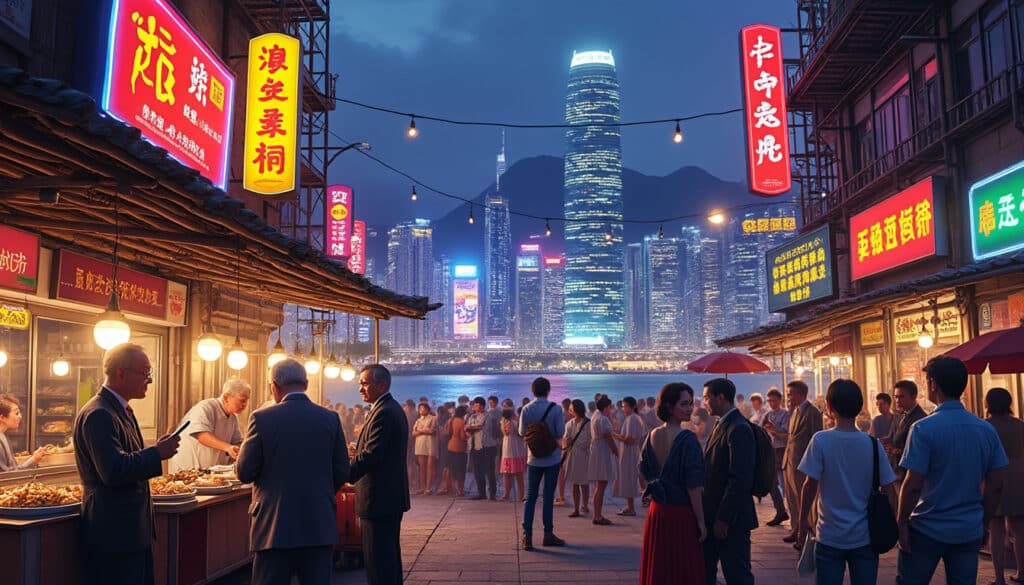
Calling and communication rules in Hong Kong
In the ever-evolving cityscape of Hong Kong, where east meets west, communication plays an essential role in connecting millions. The bustling environment demands a comprehensive understanding of the calling and communication rules to seamlessly integrate into the city’s lifestyle. With…
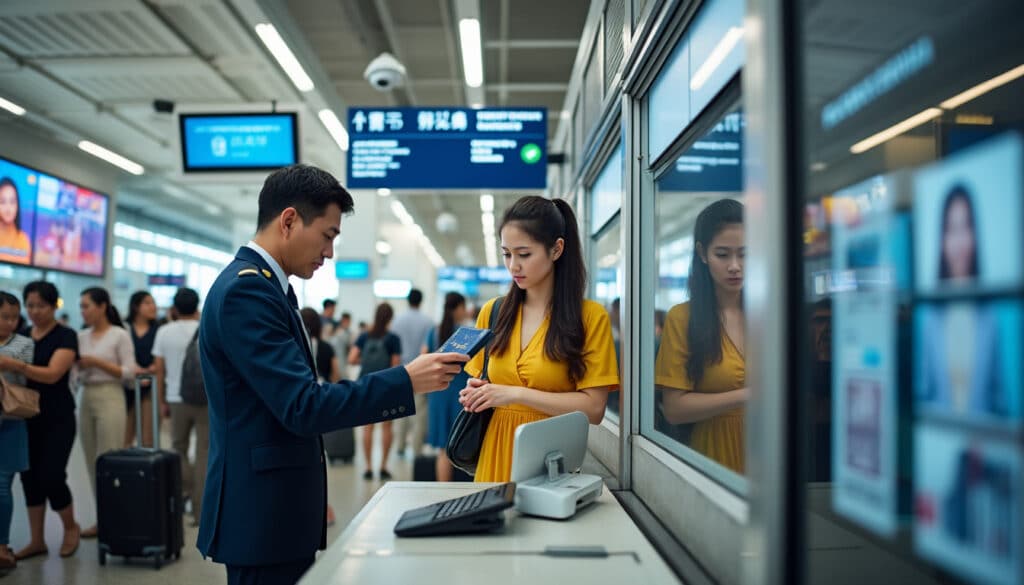
Criminal status and entry to Hong Kong
Hong Kong, with its blend of the traditional and the ultra-modern, attracts millions of tourists, business travelers, and expatriates each year. Yet, entering this bustling metropolis isn’t always straightforward, especially for those with a criminal history. Ensuring compliance with Hong…

Hong Kong is a city that never sleeps, teeming with activities and attractions that cater to both residents and travelers. The city’s dynamic energy is accentuated during its holiday celebrations, offering numerous opportunities for fun and exploration. Whether it’s enjoying…
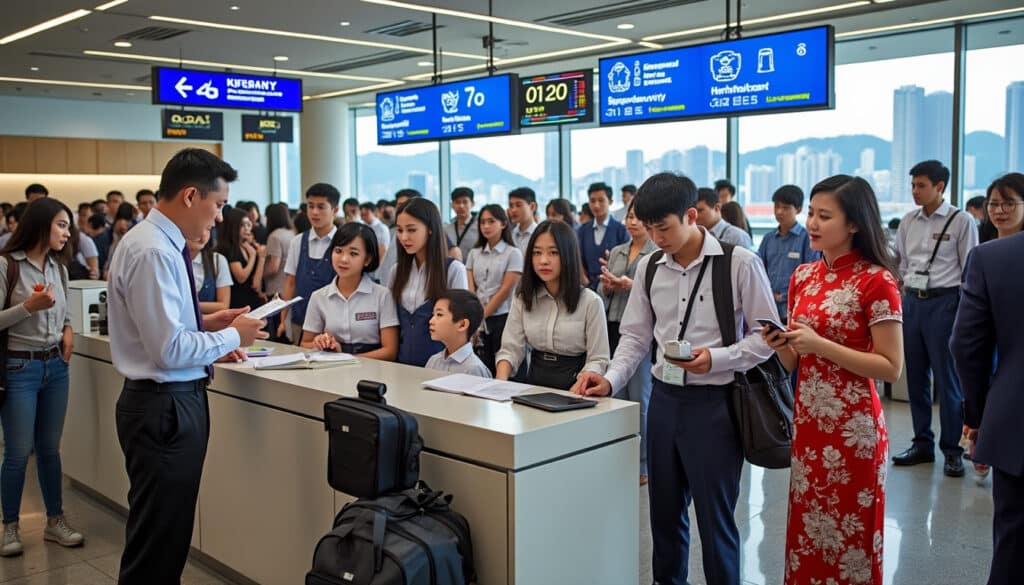
How to move to Hong Kong legally
Dreaming of a new chapter in one of Asia’s most bustling and dynamic cities? Hong Kong, often celebrated as the “Fragrant Harbour,” is as captivating as it is complex. Moving to this vibrant city brings a unique mix of challenges…
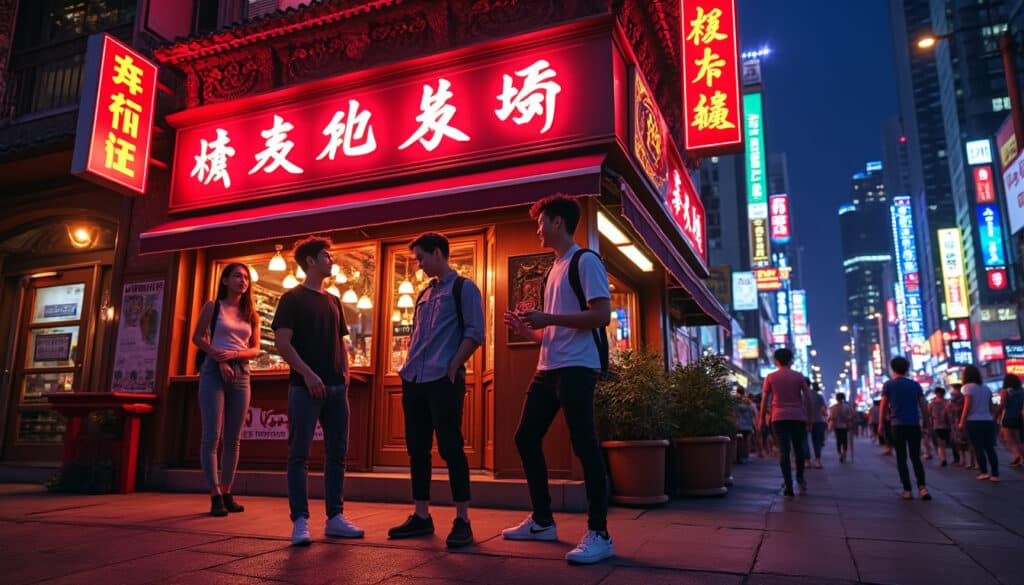
Smoking, drugs, and red light laws in Hong Kong
In Hong Kong, a unique blend of eastern and western influences can be seen in its laws and cultural practices. As Asia’s World City, Hong Kong maintains strict regulations around smoking, drugs, and its notorious red-light district, reflecting both its…
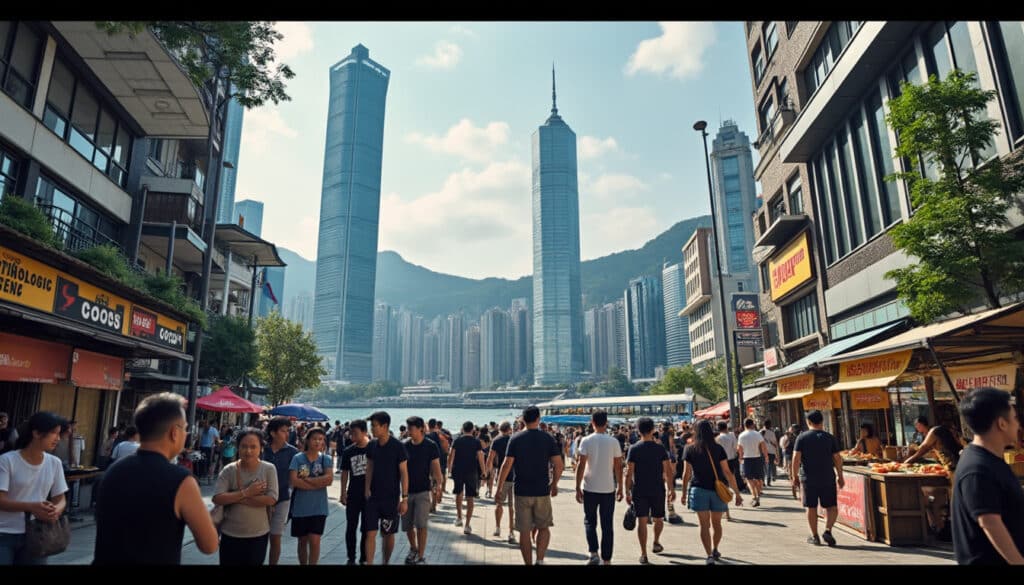
Social and discrimination issues in Hong Kong
Hong Kong, a city renowned for its dynamic energy and cultural diversity, faces significant challenges when it comes to social and discrimination issues. Despite being a global financial hub, the city struggles with underlying tensions that affect its unique identity…

